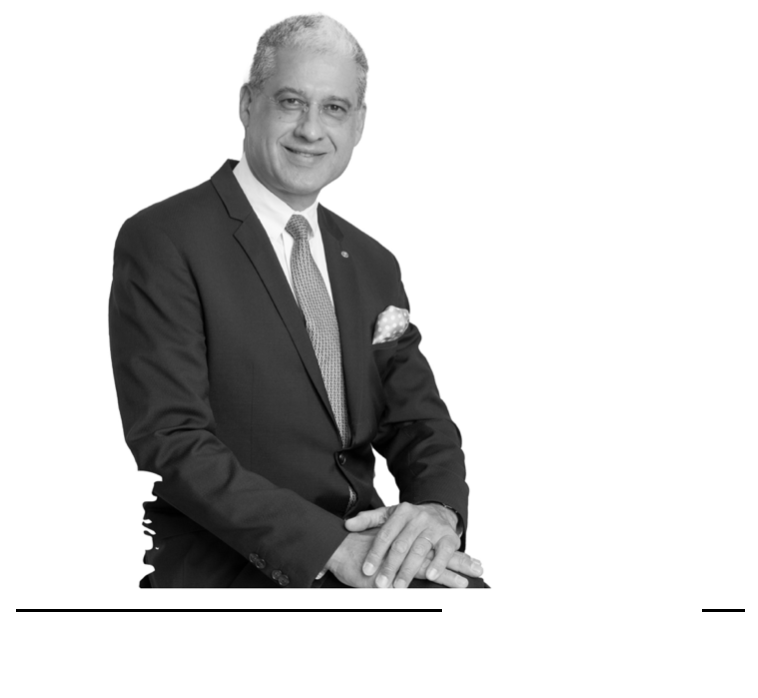By: Edvard Philipson
Principal
PHILIPSON BUSINESS CONSULTING
When people asked me what I wanted for my professional career, I always thought about going “international.” Having been born to a Swedish immigrant in Mexico, I was always curious about the numerous foreigners that came to visit us from Europe, Canada, and the United States. My father speaks five languages and the food he likes to cook has always been different from the tasty, local Mexican cuisine. Having family members more than 10,000 kms away who were always sending letters that took at least a month to arrive, was an invitation to discover the world.
In the 80s, moving to a foreign country was not an easy task, inflation and currency fluctuations due to Mexico’s unstable economy at the time made it difficult for a young professional like me. But they say that if you have your mind set in a well-defined goal, it’s just a question of time until you realize your dreams.
My opportunity came from work. In my late-twenties, I was working for an international pharmaceutical Company–Eli Lilly–that had an amazing program to develop global talent through an initiative called “International Sales and Marketing Development Program.” The Program allowed promising young employees to spend time in the United States for 2 to 3 different assignments. The first one, always in Sales. So, with our one-year-old daughter and a second daughter on her way, my then-wife and I embarked on an adventure that took us to West Palm Beach, Florida and then to Indianapolis, Indiana.
For Mexicans, the US is a natural destination, either for work or for leisure. However, going to work for a global pharmaceutical company based in the Mid-West is not exactly easy. I should recognize that Eli Lilly was an amazing Company towards its relocated employees. I remember at least 3 things they recognized as critical:
- Ex-pat family well-being was paramount. “If the family does not settle-in well, the employee will not be able to perform well at work.” Therefore, major support was given to our spouses to adapt quickly to their new home.
- Adapting to a new cost of living. Since you are not familiar with prices and best consumer practices when you move, you will most likely spend more money than you should at the beginning. Therefore, ex-pat employees had a one-time extra month of salary that was granted for “dumb” purchases.
- Relocation support system. Having someone to explain how and where to buy groceries and medications, where to find a bilingual church, what is the acceptable tip at the restaurant, and so forth.
For my family, there were several challenges we had to overcome:
- The most difficult and important one was finding an obstetrician that would accept my wife going into her 7th month of pregnancy. Because of liability concerns, it was very difficult to have a doctor’s office treat my wife and newborn child. We had to pull all the work connections we had.
- The other major challenge we encountered was climate, as you may imagine, it never snows in Mexico City. I learned to be extra cautious while driving on ice the day my car spined 3 times in the Interstate 465 highway!
At work, there were several cultural challenges to be faced. Probably the biggest challenge for someone coming from a Latin work culture is Americans’ forwardness. In the US, you spend a few seconds socializing at the beginning of a work meeting, but it is usually expected to get straight into business. It is very different from Mexico, where you spend 2 to 3 hours in a breakfast or lunch meeting, socializing before you start addressing the real work!
The other important behavior I had to learn was networking. In the US, there are events especially designed to meet and greet people that will be internal resources or good external connections. You make small talk and engage with other people but what a difficult task it is when you know nothing about the NFL, and much less the statistics of players during the Baseball or Basketball season!
My assignment in Indianapolis was cut short after 2 years, as the Company required me to return to Mexico to start a new Business Unit. My mindset and view of the world was totally different from the young man that I had been before this wonderful experience.
Since then, I have been relocated to 8 different destinations and lived in more than 18 homes. We showed the world to our daughters, and they embraced the wealth and richness of the global diversity and culture.
One of my many destinations was Santiago, Chile. My family and I accepted the assignment without a prior exploration trip. So, we embarked on a plane to the Southern most country in the Americas, knowing very little of the politics, geography, and local culture. I am not sure I would make such a decision today, but the experience was amazing!
Chile was just re-emerging after the Pinochet dictatorship and had recently re-opened diplomatic relations with Mexico. At that time, everything about Mexico was in fashion. People always complemented our “lovely” Mexican accent. Nonetheless, I knew very little about banking regulations, labor laws, regulatory requirements for pharmaceuticals, and even less about the fierce competition from the local producers against the global Pharma companies. I had to learn fast, not only to operate but to survive! I reached out to the US Embassy for help and received much support, such that we launched the Eli Lilly Chile affiliate at the US Embassy itself.
I also learned that people (employees and competitors) will take advantage of your limited knowledge of the market. I remember how we bought more costly and fancier cars than needed for the salesforce out of ignorance. I also remember how we lost the insulin government tenders for 3 years in a row due to “greyish” competitive practices, that we learned how to neutralize later. The learning curve is steep and you need to quickly process everything.
In retrospective, I can say that succeeding as an ex-pat is tough and demanding. However, the skills and competencies that come with it are invaluable for the future executives and leaders of global organizations. To name a few:
– Learning ability. Adaptation requires the capacity of processing information and deciding on new facts versus the “way we have always done things”.
– Flexibility. Behaviors and attitudes are different everywhere and we need to respect and adapt to be successful.
– Building a team and empowerment. There is no way that you can be more efficient in local matters than someone that has always lived in the country, but you can assemble a trusted team of colleagues that you can lead to achieve the purpose you are aiming for.
Finally, I must say that if anyone reading this is considering taking an ex-pat career, there are long term costs that should also be considered. For example, most retirement plans are local and do not consider workers moving into different countries. Make sure you have at least one retirement plan that you can return-to after many years of travelling the world.
The other major challenge is taxes. There are many resources in this field and mutual tax recognition treaties. Still, you should ensure that in the long term you do not end up earning less income by making your own calculations.
Lastly, there is a toll on the family. As you move from one country to another, your children may elect to stay in one of those destinations – either because of friends or due to identity aspects. Make sure that “home” is well defined and that some rituals happen every year. Then, everyone will long to get together again!




